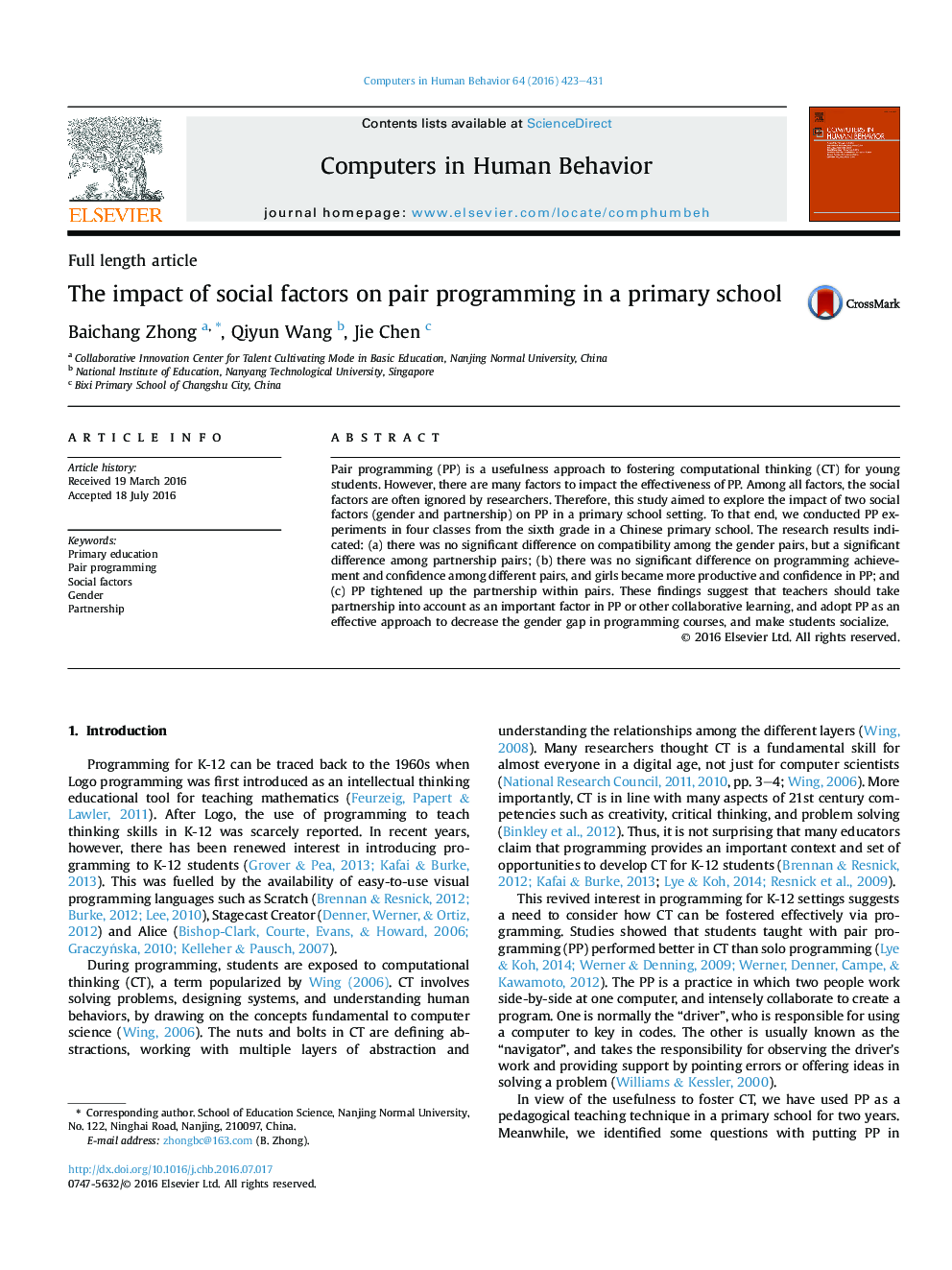| Article ID | Journal | Published Year | Pages | File Type |
|---|---|---|---|---|
| 6836578 | Computers in Human Behavior | 2016 | 9 Pages |
Abstract
Pair programming (PP) is a usefulness approach to fostering computational thinking (CT) for young students. However, there are many factors to impact the effectiveness of PP. Among all factors, the social factors are often ignored by researchers. Therefore, this study aimed to explore the impact of two social factors (gender and partnership) on PP in a primary school setting. To that end, we conducted PP experiments in four classes from the sixth grade in a Chinese primary school. The research results indicated: (a) there was no significant difference on compatibility among the gender pairs, but a significant difference among partnership pairs; (b) there was no significant difference on programming achievement and confidence among different pairs, and girls became more productive and confidence in PP; and (c) PP tightened up the partnership within pairs. These findings suggest that teachers should take partnership into account as an important factor in PP or other collaborative learning, and adopt PP as an effective approach to decrease the gender gap in programming courses, and make students socialize.
Related Topics
Physical Sciences and Engineering
Computer Science
Computer Science Applications
Authors
Baichang Zhong, Qiyun Wang, Jie Chen,
